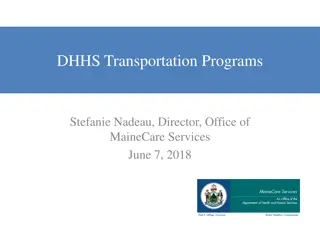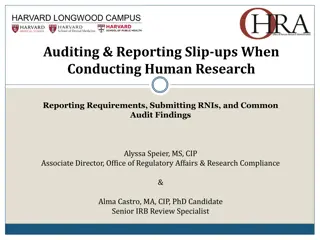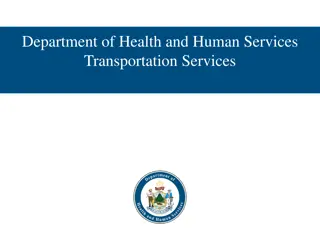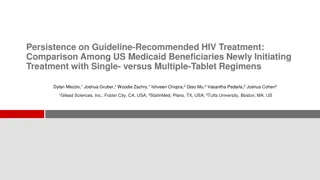Maine DHHS Transportation Programs Overview
The Maine Department of Health and Human Services (DHHS) oversees various transportation programs aimed at providing non-emergency transportation services to low-income, child welfare-eligible, and Section 17-eligible individuals. These programs are managed through regional brokerage systems, with b
3 views • 5 slides
Fiscal Monitoring and Funding Updates for NC DHHS Programs
Explore the latest updates on fiscal monitoring, funding allocations, and program reviews for North Carolina DHHS initiatives. Learn about COVID-19-related funding shifts, reimbursement processes, end-of-year planning tips, and tracking requirements to ensure compliance and effective program managem
1 views • 17 slides
Ensuring Compliance in Human Research: Reporting and Audit Guidelines
Understand the importance of reporting slip-ups in human research, as per DHHS and FDA regulations. Learn what needs to be reported, when to report, and where to report. Discover key elements for ESTR RNI submission and corrective action plans for maintaining research integrity.
0 views • 24 slides
DHHS Coordination of Transportation Service Contracts Overview
The Department of Health and Human Services in Maine conducted an assessment of Transportation Services in June 2019. The workgroup identified three main priorities: alignment of Quality and Performance Measures, Safety Measures, and Evaluation of Transportation Services. The first priority involves
0 views • 28 slides
Enhancing Business Engagement and Consumer Outcomes in Maine's CRP System
Redesigning Maine's CRP system to reduce expenditures, improve employment outcomes for consumers, and enhance business engagement through a statewide approach. Stakeholders involved include CRPs, state councils, and various DHHS offices. The timeline spans milestones from 2014 to 2017, with outcome-
0 views • 17 slides
FY21 Fringe Rates and Benefits Analysis for Research Grants
Explore the newly negotiated FY21 fringe rates for grants, historical comparisons, and the treatment of fringe benefits on grants per Uniform Guidance. The comprehensive analysis includes details on the increase in rates to recover deficits, benefits included in the fringe rates, and the process of
0 views • 14 slides
Comparison of Persistence on Guideline-Recommended HIV Treatment Among US Medicaid Beneficiaries
This study compares the persistence rates of newer DHHS guideline-recommended single- and multiple-tablet regimens for treatment-naive patients living with HIV. The analysis utilized the All-Payer Claims Database to assess treatment patterns among Medicaid beneficiaries, highlighting the importance
1 views • 19 slides






